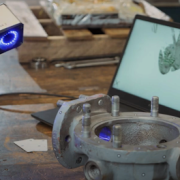Obtaining a parent visa 143 can be a lengthy and complex process, often accompanied by frustratingly long processing times. These delays can cause significant stress and uncertainty for applicants and their families. However, there are coping strategies that can help alleviate some of the challenges associated with waiting for your parent visa to be processed.
Understanding the Process:
Before delving into coping strategies, it’s essential to understand the parent visa 143 processing time and the overall application process. The Parent Visa (subclass 143) allows parents of Australian citizens, permanent residents, or eligible New Zealand citizens to live in Australia permanently. However, this visa category is subject to high demand, leading to extensive processing times that can stretch over several years.
1) Stay Informed and Manage Expectations
One of the most effective coping strategies for dealing with long processing times is to stay informed about the status of your application and manage your expectations accordingly. Regularly check the Department of Home Affairs website for updates on processing times and any changes to visa requirements. Understanding that delays are common can help you mentally prepare for the wait and reduce feelings of frustration.
2) Maintain Communication
Maintaining open communication with the Department of Home Affairs can provide reassurance and clarity during the waiting period. If you have any concerns or questions about your application, don’t hesitate to contact the department directly. Additionally, consider joining online forums or support groups where you can connect with others who are going through a similar experience. Sharing experiences and tips with fellow applicants can offer valuable support and guidance.
3) Focus on Positive Distractions
While waiting for your parent visa 143 to be processed, it’s essential to focus on positive distractions to maintain your mental well-being. Engage in activities that bring you joy and fulfillment, such as hobbies, exercise, spending time with loved ones, or pursuing personal interests. By keeping yourself occupied with meaningful activities, you can help alleviate stress and anxiety associated with the uncertainty of the visa process.
4) Seek Professional Support
If you find yourself struggling to cope with the stress of waiting for your parent visa to be processed, don’t hesitate to seek professional support. Consider reaching out to a counselor or therapist who can provide guidance and strategies for managing anxiety and stress. Additionally, consulting with a migration agent or lawyer specializing in parent visas can offer valuable insights and assistance throughout the application process.
5) Plan for the Future
Instead of dwelling solely on the uncertainties of the present, focus on planning for the future once your parent visa is granted. Start researching and preparing for your move to Australia, including practical considerations such as housing, healthcare, and social integration. Having a concrete plan in place can help shift your focus away from the waiting period and towards the exciting opportunities that lie ahead.
Conclusion:
While waiting for your parent visa 143 processing time can be challenging, employing coping strategies can help you navigate this period with greater resilience and peace of mind. By staying informed, maintaining communication, focusing on positive distractions, seeking professional support, and planning for the future, you can effectively manage the stress and uncertainty associated with the visa application process.
Remember that patience and perseverance are key, and eventually, your efforts will be rewarded with the opportunity to join your loved ones in Australia permanently.


















Comments